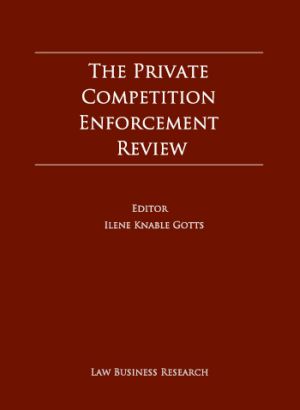
Private antitrust litigation has been a key component of the antitrust regime for decades in the United States. The United States litigation system utilises extensive discovery, pleadings and motions, use of experts and, in a small number of matters, trials to resolve the rights of the parties. The process imposes high litigation costs (in time and money) on all participants and promises great rewards for prevailing plaintiffs. Despite attempts by Congress and the US Supreme Court to curtail some of the more frivolous litigation and class actions, the environment remains ripe for high litigation activity in the near term, particularly involving intellectual property rights and cartels.
Private competition enforcement is largely a work-in-progress in many other parts of the world. Many of the issues raised in this book, such as pass-on defence and the standing of indirect purchasers, are unresolved in many countries. Our authors have provided their views regarding how these issues are likely to be clarified in all of the most significant jurisdictions. Also unresolved in some jurisdictions is the availability of information obtained by the competition authorities during a cartel investigation, both from a leniency recipient and a party convicted of the offence. Other issues, such as privilege, are subject to proposed legislative changes. The one constant across all jurisdictions is the increase of cartel enforcement activity, which is likely to be a continuous source for private litigation in the future.
Each contributor to The Private Competition Enforcement Review is a distinguished legal practitioner in his or her local jurisdiction. All practising competition lawyers need to be familiar with the issues most relevant to the commercial operation of their international clients, and the Review represents an immediate and accessible summary of developments across the most significant jurisdictions worldwide.